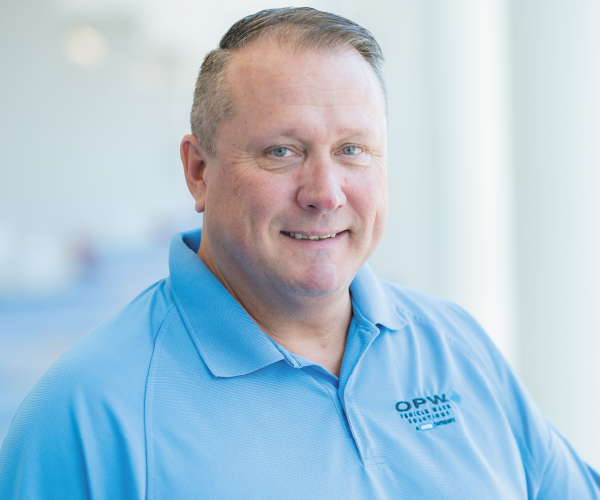
Roll Up Your Sleeves
November 7, 2017
7 minute ReadThe chairman of the board for the Texas Aggregates and Concrete Association was working up a light sweat and straining slightly to make sure that every screw in the bicycle he was putting together had been tightened to the max. He was working alongside that association’s Emerging Leaders group, young industry employees participating in a three-year program designed to prepare them for leadership roles at their companies.
The TACA Emerging Leaders had organized a community service project to purchase and assemble bicycles for needy children, and for three hours on a hot June day in Texas, company executives and entry-level employees alike were hard at work. To Rick Kolster, the author, keynote speaker and leadership development coach in charge of the Emerging Leaders program, this was the definition of leadership in action.
To Kolster, the company executives and association’s board members were “leading from the front” and providing a valuable lesson for managers in all kinds of businesses, including car wash operators.
“This concept of values-based servant leadership is the future of leadership,” said Kolster, the author of the leadership development book “Roll Up Your Sleeves and Get to Work.”
“The executives showed the young employees that they were willing to get down and dirty and weren’t afraid to do the work, whatever it takes to get it done,” he said. “A leader has to show people how to follow him or her. Lead by example, and don’t be afraid to get your hands dirty.”
For car wash operators, leading by example means taking time when possible to do all the things they’ve hired their employees to do: greeting customers, working the cash register and even drying cars. By showing their employees an attention to detail and a commitment to service, car wash operators can prove that no job task is unimportant or beneath the boss, and they can eliminate excuses for a halfhearted effort. No employee will be able to say, “I didn’t know,” or, “No one showed me how to do it.”
In short, hands-on leadership can validate the old saying that a good leader never asks someone to do something he’s unwilling to do himself, Kolster said.
The team concept is often talked about in the workplace but is easy for employees to ridicule if it isn’t backed up by action. After all, employees show up to work each day to better themselves, and when it comes time to pay the bills, we’re all on our own. But car wash operators can make the concept of teamwork more than just a workplace buzzword by actively fostering a team environment.
Kolster encourages car wash operators to reach out to local community organizations so employees can voluntarily participate together in community service projects – especially when the long-range weather forecast calls for rain and business is certain to be slow. Car wash operators also can literally make their employees a team by having the company join a softball or bowling league.
“The approach with this new generation of people is to get buy-in,” Kolster said. “The millennial generation is looking for direction, guidance and something to buy into, something to believe in, so a good leader gives them something to buy into. You have to take that initiative.”
Beware of cracking the whip
In an era when social media is dominant and seemingly everyone has a Facebook account, managers who are stereotypically hard-line and highly critical disciplinarians face risks that their predecessors did not, according to Barbara Kellerman, the James MacGregor Burns Lecturer in Public Leadership at the John F. Kennedy School of Government at Harvard University.
Kellerman, whose books include “Bad Leadership: What It Is, How It Happens, Why It Matters,” said car wash operators should beware of becoming a “callous leader.” Managers who fail to care about employees as people and treat them without respect risk subjecting themselves and their businesses to public embarrassment.
“There’s a higher level of consciousness among leaders and managers in workplaces now that they should be somewhat more conciliatory, tolerant and decent toward employees because the capacity for people to retaliate online is obviously very great,” she said. “There’s no one in a position of leadership or management anymore who is not vulnerable to the changes in technology and culture that make people feel much freer about criticizing their superiors.”
This is especially true right now in the United States, where the unemployment rate dipped to 4.3 percent in early August, a 16-year low that represented nearly full employment. Entry-level, low-paying jobs are far more abundant than just a few years ago, so employees are less likely to endure harsh treatment because they fear losing their job.
Instead, Kellerman said car wash operators should make an effort to get to know each employee and what motivates him or her. If an employee is attending school or has a child or elderly parent to care for, the car wash operator should try to be as flexible as possible to help that employee meet obligations outside of work. Employees who feel valued are more likely to be loyal to their employer and strive to meet their obligations at work.
Similarly, creating a good workplace environment – with clean restrooms, a break room and basics like water and coffee – tells employees that their bosses care about their comfort.
“I’m a huge believer in the power of simple, common decency and human kindness toward employees and subordinates,” Kellerman said, “particularly in lower-paying jobs. There’s usually no price to be paid for simple human decency. We’re not talking about higher salaries or more generous benefits, so there really is no literal cost to creating a workplace that values kindness – not occasionally but as part of the everyday culture.
“Certainly, one of the contemporary workplace fads is a flatter hierarchy and more equity and teamwork and empowerment, but there is often a gap between the language and how that really gets played out, so that makes it all the more important in this culture of team to make sure that at least some of it is realized.”
Recognizing your MVPs
On any team, some players simply outperform the others, and to retain employees and keep morale high, there’s simply no substitute for a little recognition, according to Andrew J. DuBrin, a professor emeritus at Rochester Institute of Technology whose books include “Leadership: Research Findings, Practice, and Skills.”
Managers should give annual raises when their budgets allow it, but there are far less expensive ways to show gratitude for a job well done. A gift card to a local restaurant for the employee of the month or a worker who reaches a milestone such as three years of service shows that workers’ efforts are noticed and appreciated and can inspire underachieving employees to step it up, DuBrin said. When the group as a whole has performed well, perhaps by handling an especially busy weekend with aplomb, a workplace pizza party can boost morale for a relatively modest expense.
Car wash operators also should provide specific feedback to employees to acknowledge exemplary performance, a strategy that can be especially meaningful to employees when done in front of their coworkers, DuBrin said.
The opposite holds true for criticism or a warning that an employee will be fired if he or she doesn’t improve performance. Embarrassing an employee in front of peers is more likely to embitter than inspire improvement, and other employees will fear that they too might get called out in front of the group if they slip. Criticism should be constructive, with the manager first acknowledging what the employee did well and then offering specific instructions for improvement.
When possible, car wash operators should share with their employees information about how the company is doing and what lies ahead. Is there a revenue goal for the year or plans to expand? Will the employees benefit if the car wash achieves its goals? Do the employees have suggestions about how the car wash can reach those objectives?
“It’s very important to give them a picture of the future and how they fit into it – what are we really trying to accomplish here?” DuBrin said. “Another really important trend is to listen to your workers and get suggestions from even the most basic, entry-level worker. Ask him or her, ‘What have you observed lately? How can we improve? What can I do to make your job easier?’ The idea is to let them participate in creating the kind of workplace environment that will make them want to stay, because retaining good employees is a challenge for every business.”
RULES OF THUMB
Here are the 12 commandments of leadership, according to leadership-development coach, keynote speaker and author Rick Kolster.
- Do it now!
- If not now, when?
- Take the initiative, get creative, be innovative.
- Give back more than you take.
- Make a decision – right or wrong – but make something happen. If you are right, great! If you are wrong, you won’t make that mistake again.
- Ask questions if you don’t know.
- If it’s broke, fix it. If you can’t fix it, find out who can.
- A positive attitude and belief in yourself leads to success.
- A negative attitude and doubt in yourself leads to failure.
- Think before you speak!
- See the job as something you do, not as something you have to do.
- Be nice!








